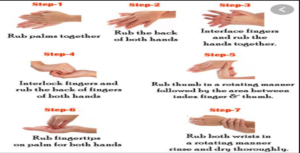Most employers are aware of the procedures to follow when an employee is absent from work due to illness, which range as follows:
Up to 3 days no medical cert, after 3 days many employers will seek a Doctor’s cert and thereafter a cert every week or month. The procedures should be set out in the employee contract of employment as established under the Terms of Employment (Information) Act 1994.
While there is no legal obligation on employers to pay sick pay, there are many Sectoral Orders that permit sick pay such as the security industry, construction, cleaning, electrical and plumbing.
There are a number of different policies employers can adopt including: no sick pay, to a sick pay scheme up to a set number of days or months at full pay less any illness welfare payments received.
Where there is a policy to pay sick pay it is paid regardless of the illness. This may leave some employers who have such policies in financial difficulty if the Coronavirus (COVID-19) takes hold of an entire workforce.
While their staff may not be directly affected, suppliers or customers may thus leaving the employer without business.
There are a number of options available to an employer if they are adversely affected. Th employer may issue an RP9 form, placing the entire workforce on temporary layoff, or short term working hours. Even where the employer in the first instance was paying illness pay, there is no legal impediment to switching to a complete shutdown and opting for the RP9 approach.An employer can avail of this even for a partial shutdown.
However, with any layoff or redundancy, procedures are vital to avoid a claim of discrimination.
Naturally, you need to ensure, pursuant to your duty of care, that the employee is not exposed to the virus due to the employer’s negligence or failure to provide a duty of care.such as sending the employee into area of known high risk, where that occurs, regardless of whether you have a sick policy, you may find yourself liable to cover the employee’s loss.
Rules to follow:
Employees will only need to be tested for coronavirus if they have symptoms and have in the last 14 days been:
- in close contact with a confirmed case of coronavirus
- to mainland China – Italian’s four areas of contamination, this does not include Hong Kong or Macau,
- in a healthcare centre or hospital where patients with coronavirus were being treated.
If the employee’s doctor thinks that they need a test for coronavirus, they will tell the employee where the test will be done. They will also tell them when to expect their results.
While the symptoms are hard to establish unless the employee is tested the HSE have set out a general description of the illness;
It can take up to 14 days for the symptoms of coronavirus to appear. These symptoms may include:
A cough, shortness of breath, breathing difficulties, fever (high temperature), Coronavirus can also cause more severe illness including: pneumonia, severe acute respiratory syndrome, and kidney failure.
Just as with any virus, good hygiene is vital to stop the spread of the illness,
Coronavirus is spread in sneeze or cough droplets.
You could get the virus if you:
- come into close contact with someone who has the virus and is coughing or sneezing
- touch surfaces that someone who has the virus has coughed or sneezed on
The virus may only survive a few hours if someone who has it coughs or sneezes on a surface. Simple household disinfectants can kill the virus on surfaces. Clean the surface first and then use a disinfectant.
Wash hands and try to avoid shaking hands in business meetings.
Ensure you use a hand cleaning gel, and any tissues should be disposed of correctly and not left in pockets, on desks or open bins.
Employers should also post notices at the entrance of their premises and at key locations throughout the building and inform staff of the steps to take to help reduce the risk of spreading the virus.
Notice to Staff and Customers
While there is no evidence of the Coronavirus (COVID-19) in Ireland,
we ask all employees and customers to follow simple steps to ensure we keep it out of the Country.
- If you feel unwell regardless or not to what you know or don’t try to stay away.
- Please ensure you wash your hands as per the poster seen here below.
- Please accept our apology for not shaking your hand; it is not personal.
- Please use a disposable tissue if you feel you are about to cough or sneeze.
- Please note the regions that are affected, and keep up to date, and if you or anyone you know has visited these areas please stay away.
- Finally, there is no evidence of the virus coming from food stuffs.

Employers should also post notices at the entrance of their premises and at key locations throughout the building and inform staff of the steps to take to help reduce the risk of spreading the virus.
